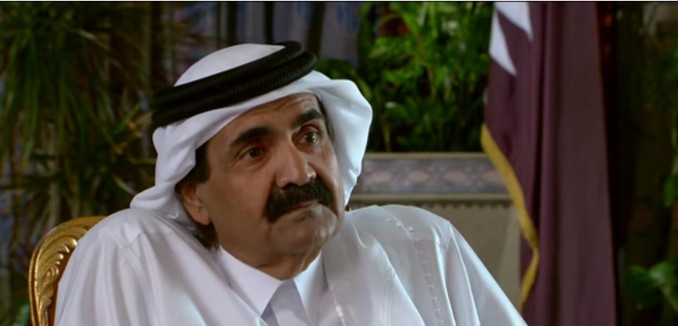An article published Monday in The New Republic by Lori Plotkin Boghardt of the Washington Institute for Near East Policy examines Qatar’s troubling ties with the Muslim Brotherhood and other radical Islamist movements, including Hamas and ISIS.
Boghardt explains that Qatar, a small emirate on the Persian Gulf caught between its more powerful neighbors – Saudi Arabia and Iran – has chosen to support the radical Islamists in part as a counterweight to its rival, Saudi Arabia.
Qatar supported Muslim Brotherhood organizations in countries across the region during the Arab uprisings in 2011, believing they represented the wave of the future. From Qatar’s perspective, being at the front end of this trend would showcase the country’s supposedly progressive leadership.
Backing the Brotherhood represented a continuation of a strategy that was already in place. Doha had hosted Egyptian and, later, Syrian Brotherhood members for decades, including the maverick Egyptian cleric Yusuf al Qaradawi who has lived in Qatar since the 1960s. Qatar had also provided Brotherhood personalities an important means for disseminating their views via the state-funded media channel, Al Jazeera, since the mid-1990s.
Qatar’s relationship with the Brotherhood has functioned as an important bulwark against Saudi Arabia. Riyadh has viewed the Brotherhood as a significant domestic irritant since the 1990s, and designated it as a terrorist group in March of this year. Qatar’s patronage of and influence over some parts of the group have served as a stick to wield against its more powerful neighbor.
Among the criticisms Boghardt levels at Qatar concern its generous funding of Hamas and its tolerance of “private fundraising for Al Qaeda, ISIS, and other radical organizations.”
While Boghardt doesn’t detail the specific ties Qatar established with Hamas, a recent paper published by the Jerusalem Center for Public Affairs explained:
Meanwhile, the Qatari-Hamas relationship grew. In 2012, the former Emir of Qatar, Sheikh Hamad bin Khalifa Al Thani became the first head of state to visit the Hamas-controlled Gaza Strip. He pledged $400 million to Hamas. Support for Hamas continued even after Sheikh Hamad turned power over to his son Sheikh Tamim bin Hamad Al Thani on June 25, 2013. The commitment of Qatar to its Hamas ties was demonstrated in a statement made by Sheikh Tamim in a meeting with Mahmoud Abbas on August 21, 2014, which was leaked: “The U.S. and the Arabs are angry at us for hosting Hamas, but I say it is an honor for us” (emphasis added).18 This strong statement in support of Qatari-Hamas relations was made just after Abbas informed Sheikh Tamim that Hamas was trying to overthrow his Fatah-led Palestinian Authority.
Given this Qatari attitude, it should come as no surprise that the Emir is planning to resume his financial assistance to Hamas after Operation Protective Edge. According to news reports, Sheikh Tamim told Hamas’ Prime Minister Ismail Haniya that Qatar is making preparations to transfer funds to help rebuild the Gaza Strip.19 Indeed, even before the war ended, Qatari fundraising foundations planned events for this very purpose. On August 8, the Qatari Red Crescent raised more than $10 million at an event at which a Hamas leader, Hussam Badran, appeared and spoke. In December 2013, Badran used his Twitter account to support bombing attacks in Tel Aviv. Another Qatari charity known as the Eid charity, set a goal of raising $30 million for the Gaza Strip.
In Qatar’s Rise and America’s Muddled Foreign Policy, published in the August 2014 issue of The Tower Magazine, Jonathan Spyer argues that Qatar’s ambitions have recently taken a hit.
But in recent months, a problem has emerged for both Hamas and Qatar: Things have not turned out as they had hoped. Their regional ambitions are largely in ruins. And their enemies have proved more resilient than they expected. General Abd al-Fattah al-Sisi’s military takeover of July 3, 2013 abruptly ended the Brotherhood’s rule in Egypt. In Tunisia, the Nahda party peacefully gave up power. The Syrian rebellion has run aground and is now in disarray—pushed back by both the Assad regime and the murderous Islamic State (IS) forces.
[Photo: CBS News / YouTube ]




